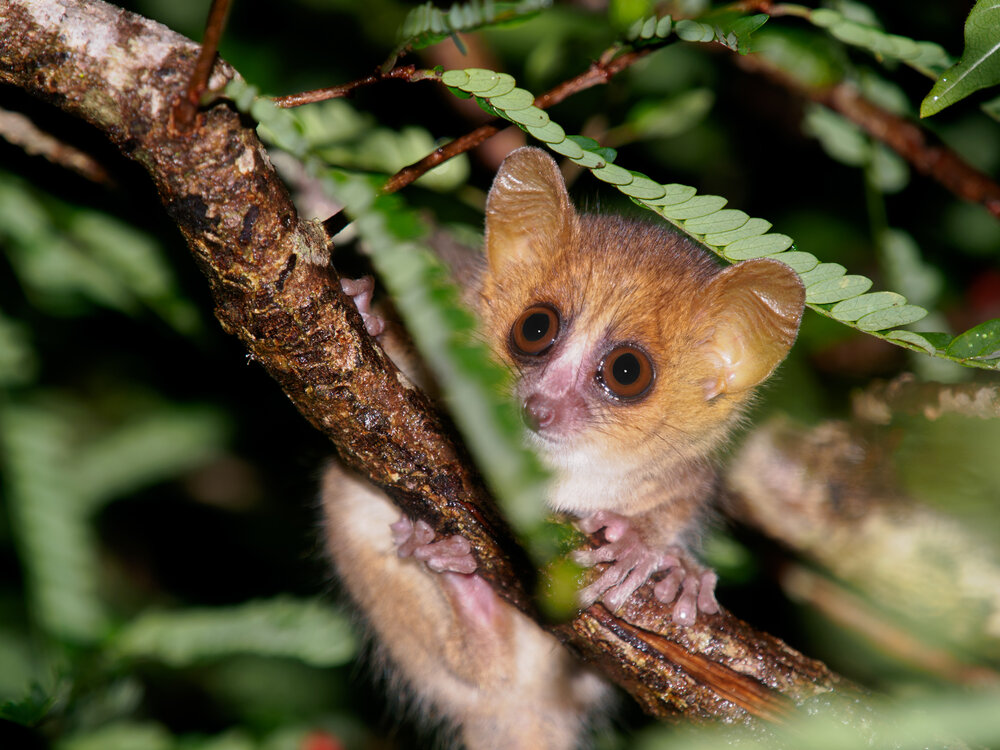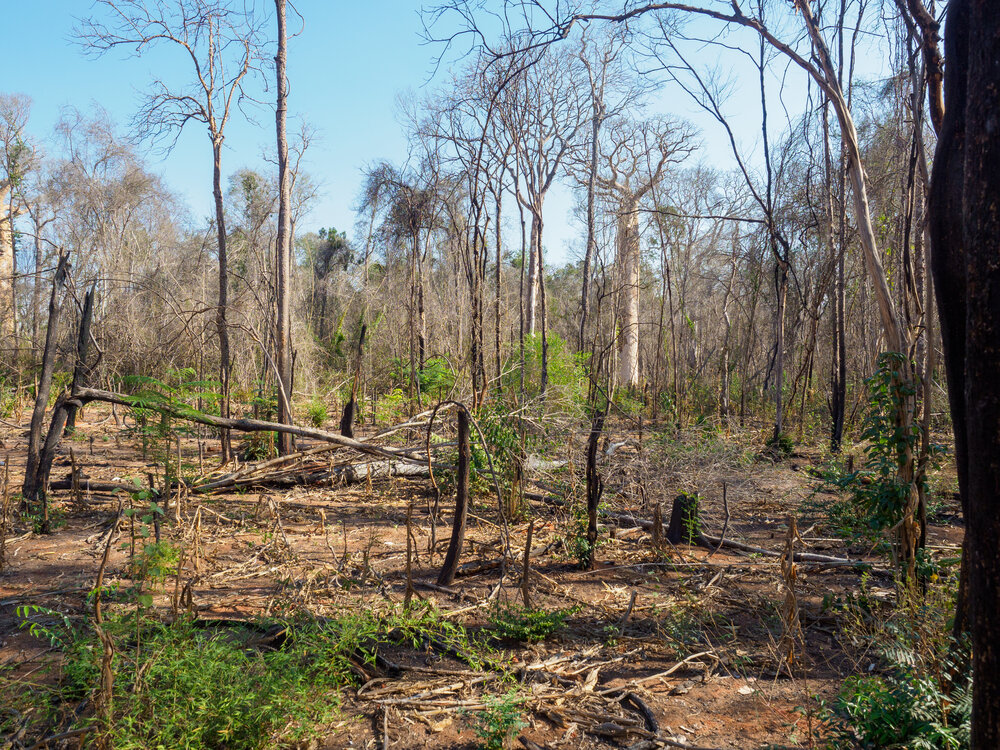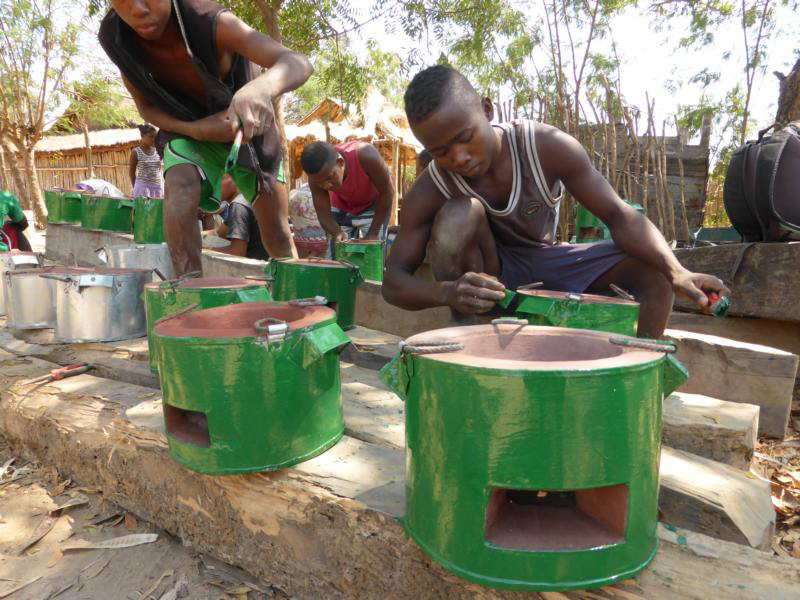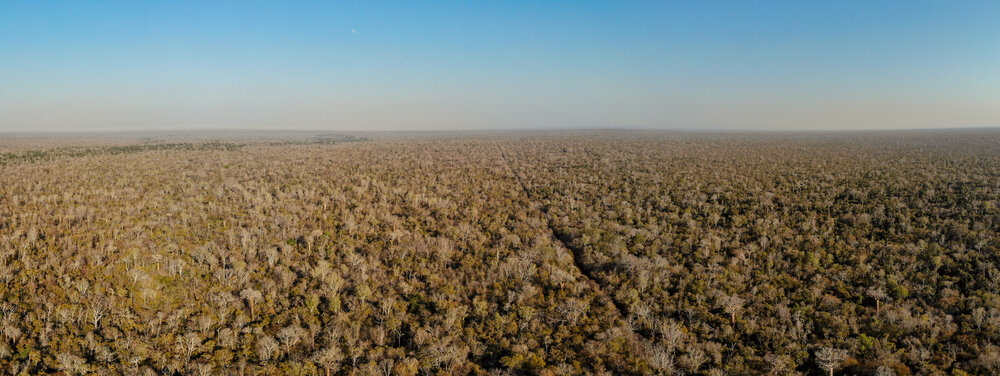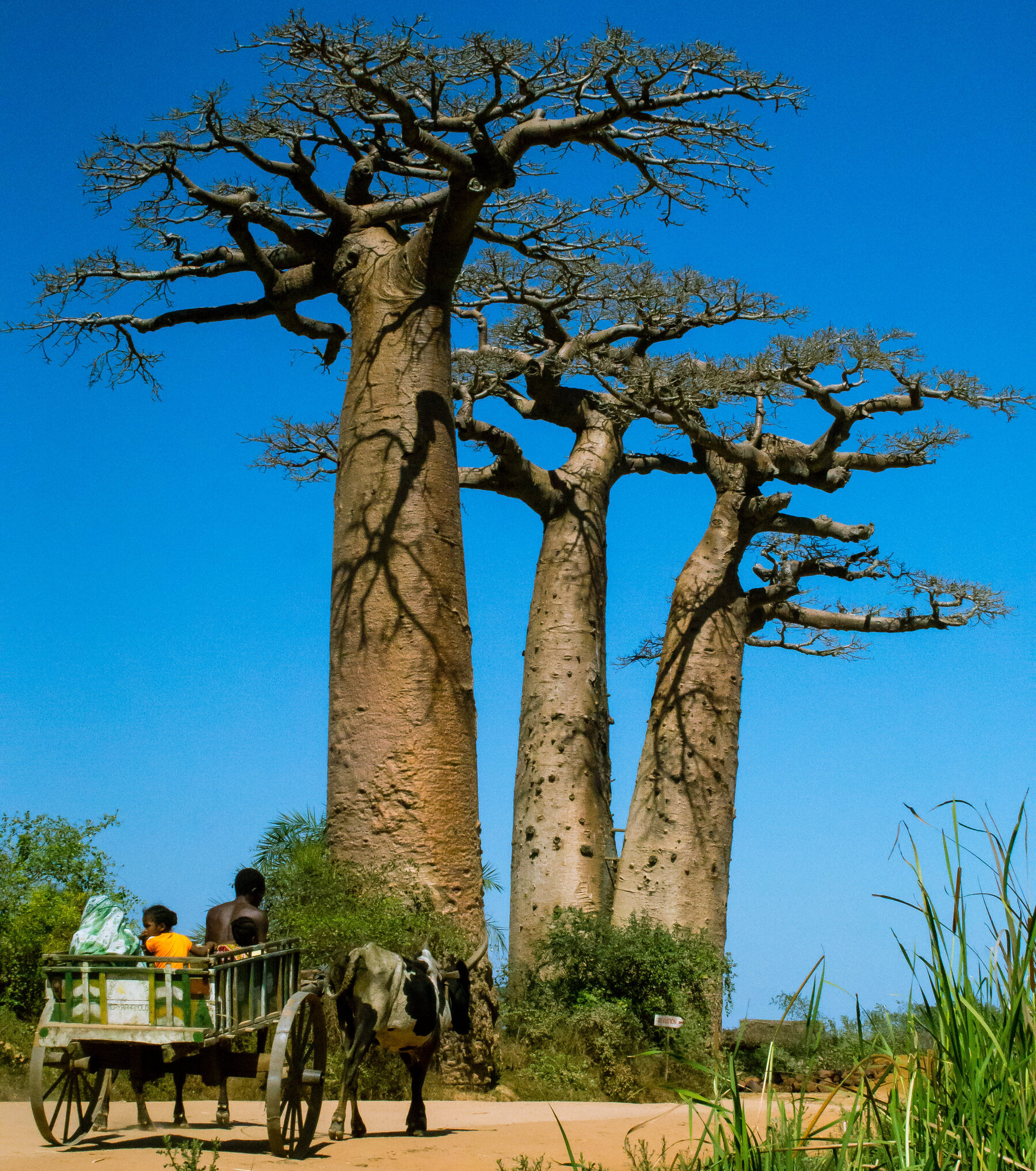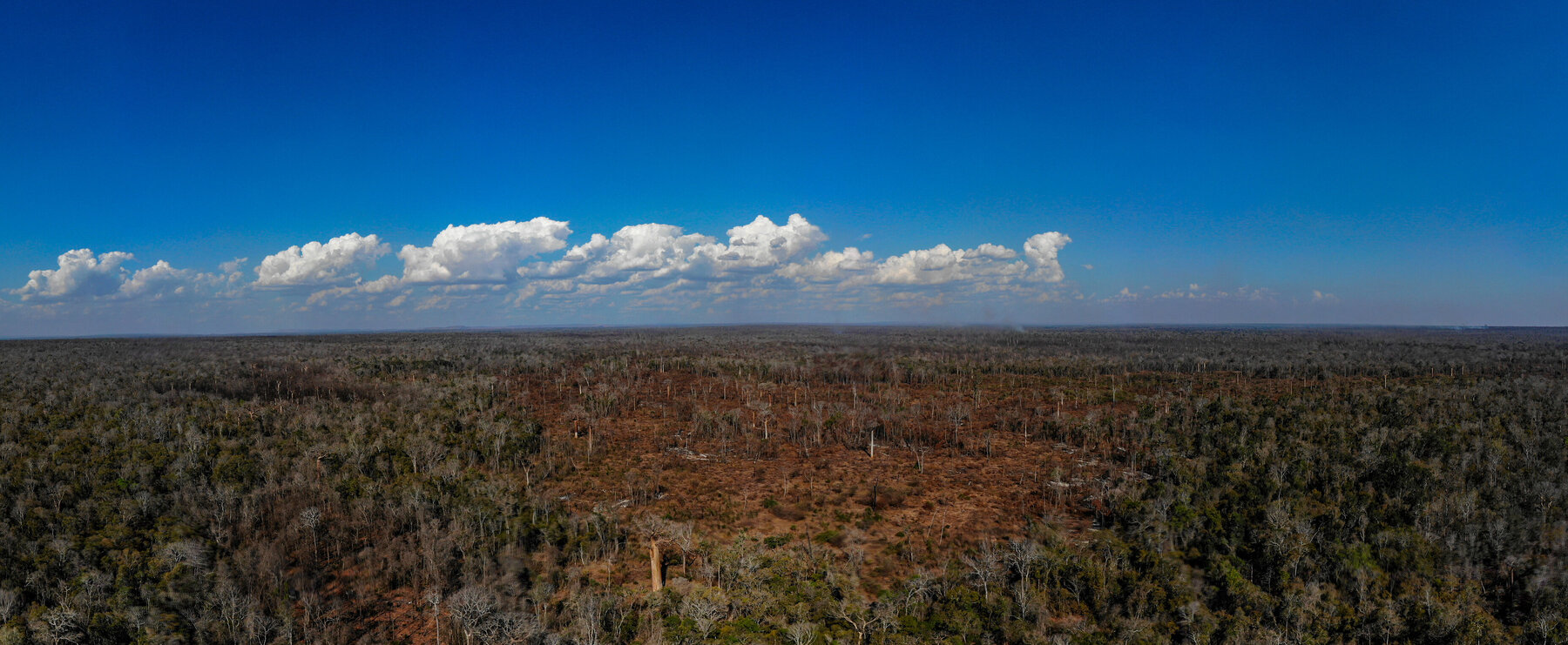
Kirindy
Berlin’s zoos are supporting efforts to preserve the Kirindy forest in Madagascar.
Project facts
- Project partner
Chances for Nature
- Species
Diverse
- IUCN threatened status
Various
- Project location
Menabe region,southwestern Madagascar
- Greatest threats
Habitat destruction and illegal hunting
- Response
Providing local people with sustainable alternatives for food and firewood
Nowhere else to go
Madagascar is famous for its unique flora and fauna. The Menabe region in the west of the country is home to one of the largest dry forests in the world: the 60,000-hectare Kirindy forest. Berlin’s zoos are committed to helping preserve the section of Kirindy that falls within the Menabe Antimena Protected Area. These 12,500 hectares are home to 41 species of mammal, 149 species of bird, 54 species of reptile, 15 species of amphibian, and countless insects. Many of the animals are endemic to Madagascar, meaning they are found nowhere else on Earth. It is therefore particularly important to protect the island’s natural habitats. Some of Madagascar’s endangered species – including the narrow-striped mongoose , the Madagascar sacred ibis and various lemurs – can be found at Zoo and Tierpark Berlin, where they act as ambassadors for their endangered home.
Protecting a unique habitat
Berlin’s zoos are working with their project partner Chances for Nature to support conservation measures in the Kirindy forest. Deep in the forest is a field station run by the German Primate Center (DPZ), which collaborates closely with Chances for Nature. The station functions as a base for a variety of research projects, i.e. on the population size and distribution of various lemur species.
The impact of poverty on humans and animals
Kirindy has been an officially protected nature reserve since 2015, meaning that hunting and deforestation are now banned in the dry forest. Yet from 2009 to 2018, the rate of tree felling increased dramatically. This is due to the fact that communities in the local area are extremely poor. They have been suffering from bad harvests and have limited access to fresh drinking water and education. Many people are being forced to venture ever deeper into the remaining forest to find firewood and meat. Their circumstances are so dire that the consequences of breaking the law are of secondary importance to them. As a result, the situation is becoming increasingly precarious both for the local people and for the last intact parts of Madagascar’s dry forest.
Providing sustainable alternatives
Chances for Nature is working with these communities to develop alternative ways of using the available resources. In doing so, it is motivating the locals to protect this unique natural habitat. For example, local families receive support in raising their own chickens as an alternative to hunting wild animals like lemurs. Keeping and breeding chickens provides the people with alternative sources of protein as well as an additional source of income through the sale of eggs and meat. In addition, providing locals with more energy-efficient stoves means they require less firewood to produce the same amount of heat. This results in fewer trees being felled in the forest, which allows areas that have been particularly heavily deforested to recover.
In addition, providing locals with more energy-efficient stoves means they require less firewood to produce the same amount of heat. This results in fewer trees being felled in the forest, which allows areas that have been particularly heavily deforested to recover.
Future prospects
Experience over the past few years has shown that a combination of educational work and the permanent presence of researchers in the Kirindy forest have a positive impact on the forest and its animal inhabitants. The central goal must be to provide local people with alternative ways of life that coexist harmoniously with protection of the natural environment and do not further restrict the opportunities available to these people, who already find themselves in a very difficult situation.
Photos: © Chances for Nature
